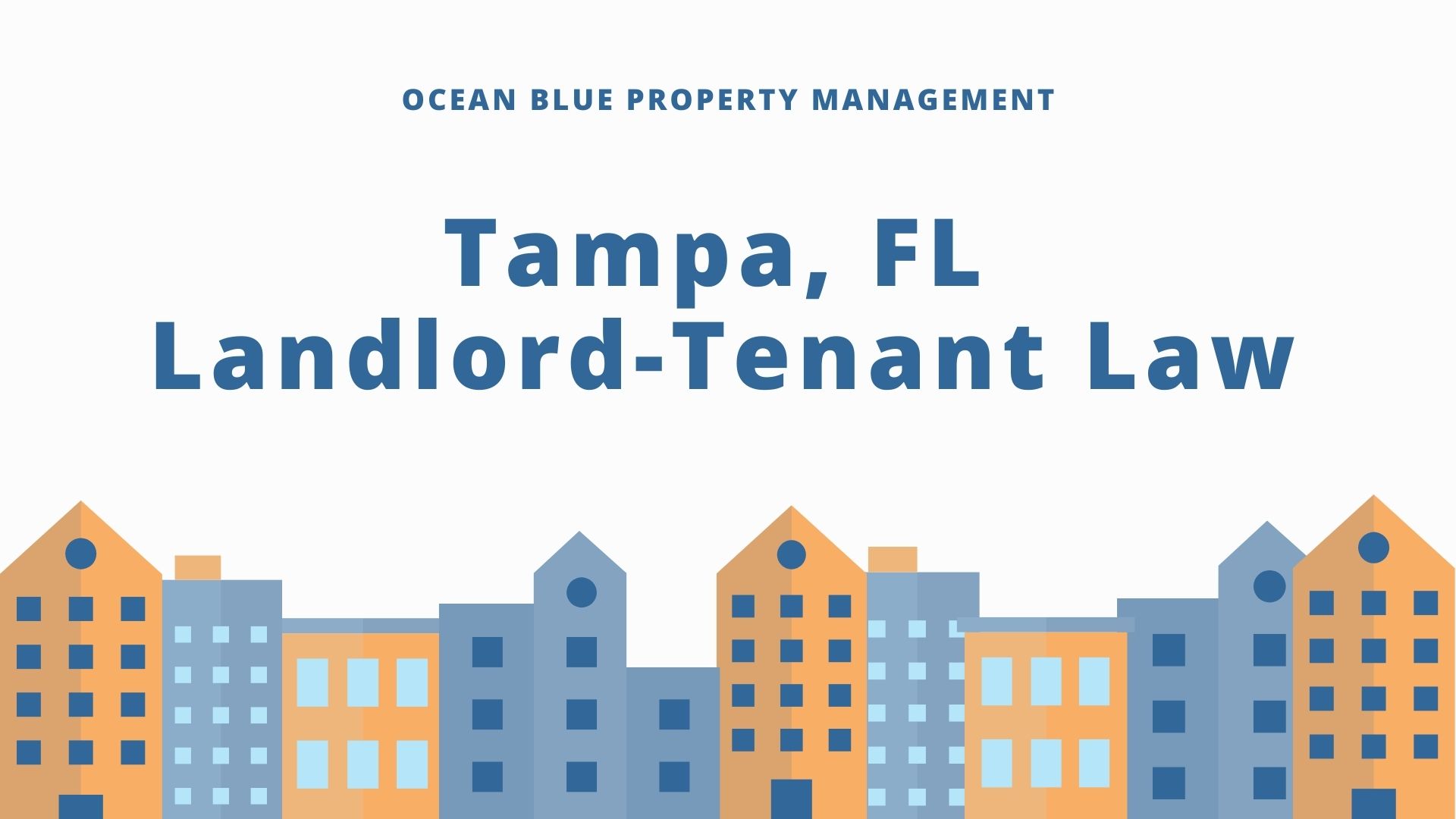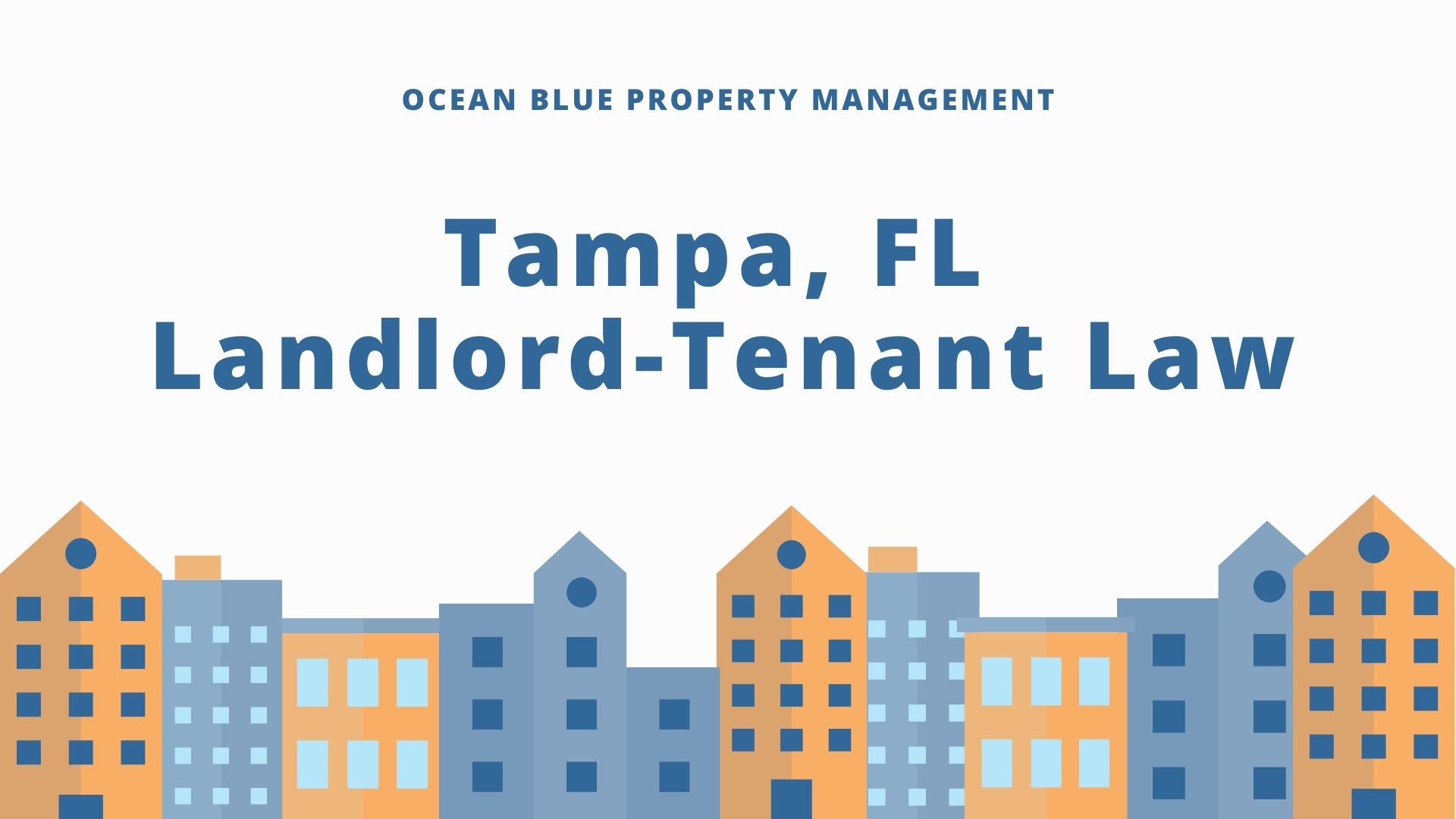
Both both the landlord and the tenants have certain inherent rights and responsibilities under Florida landlord-tenant law. In Florida, they are contained in the FL Statute Chapter 83.
When renting out a rental property, it’s important that you familiarize yourself with the Florida landlord-tenant law in order to properly discharge your duties. If you’re a landlord in Florida, the following are the basics of the landlord-tenant law that you should know.
Required Landlord Disclosures
Tenants in Florida have a right to be provided certain disclosures, under Florida statutes, by their landlord prior to moving in. The disclosures are as follows:
- Lead-based paint. This applies to landlords who rent out units built prior to 1978. Federal law requires that the landlord provide the tenant with information about lead-based paint concentrations.
- Security deposits. This only applies to landlords who manage at least 5 individual dwelling units.
- Radon gas. This is a state law that requires landlords to provide their tenants with information regarding the presence of radon gas. You must provide it to your tenant regardless of whether or not radon gas is present in or near the rental unit.
- Authorized authorities. As a Florida landlord, you’re required by state law to provide your tenants with your names and addresses. In the disclosure, you must also state whether the property is managed by a property manager, and if so, their names and addresses – as well.
If a landlord fails to advise a tenant of these disclosures, under Florida statutes it could lead to legal action.
Tenants’ Rights & Responsibilities
Your tenants in Florida have the following rights under Florida law. The right to:
.jpg)
- Be provided the aforementioned disclosures prior to signing the lease and moving in
- Be treated fairly regardless of their race, color, religion, and other protected class under the Florida Fair Housing Act
- Live in a property that abides by the state’s applicable building habitability and health codes
- Be served a 12 hours advance written notice prior to landlord entry
- Be notified prior to a rent raise and pay rent at the new rate
- Early written lease termination without penalty under certain conditions or if the written rental agreement permits
- The refund of their security deposit within 15 days of moving out
- A judicial eviction process compliant with Florida law
- Have repairs made within seven days of serving a written notice
The list of tenant responsibilities for Florida tenants under the Florida landlord-tenant laws includes the following:
- Making timely rent payments and not withhold rent unless legally justified by Florida state law
- Not causing excessive property damage to the unit
- Maintaining the unit in a safe and habitable condition as per the rental agreement
- Keeping the unit clean and sanitary in accordance with the lease agreement
- Keeping the plumbing, electrical, and other dwelling fixtures clean and sanitary
- Using the provided facilities in a reasonable manner
- Respecting the peace and quiet of neighbors and other tenants
- Repairing the damage that they cause and not withhold rent for repair unless instructed
If the tenant fails in adhering to their duties under the Florida laws, then they may be liable for a breach of the Florida residential landlord-tenant act.
Landlords’ Rights & Responsibilities
Florida landlords have the following rights under Florida statutes in the state of Florida. The right to:
.jpg)
- To have the tenant pay rent at the agreed-upon rate
- Make allowable deductions to the security deposit
- Evict a tenant for violating the lease agreement
- Be given reasonable notice of needed repairs or maintenance issues
- Be notified prior to a tenant moving out at the end of the term
- Raise rent for any reason
- Charge whatever late fee when the rental payments fall late
- Enter rented premises to carry out important landlord responsibilities
- Reject renting to a tenant that doesn’t qualify. That said, the grounds must not have a discrimination basis.
- Create a lease agreement
Equally, Florida landlords have certain responsibilities that they must abide by. Common landlord responsibilities include the following.
- Provide a habitable living space
- Make requested repairs within a period of 7 days after being notified
- Remove any disturbances or annoyances that impact a tenant’s quiet enjoyment of their rented premises
- Abide by the Florida eviction law when removing tenants for violating the lease agreement and to provide a eviction notice when needed
- Handle a tenant’s security deposit in accordance with Florida’s security deposit rules
- Notify the tenant prior to raising the rent at the end of a tenancy cycle
- Treat all tenants equally regardless of their race, color, religion, or any other protected class
- Provide the tenant with certain mandatory disclosures as already aforementioned
Overview of Florida’s Landlord-Tenant Law
Habitability
Florida landlords are required to provide a habitable living space to their inhabitants. In Florida, you must provide your tenant the following under the warranty of habitability:

- Electrical outlets and wiring
- Water
- Plumbing/sanitation
- Dwelling structures
You may also have to provide other facilities in accordance with the rental agreements. For example, heating, adequate ventilation, and pest control.
Repairs
You have a responsibility to maintain any amenities that you have provided to your tenant. And this may include those that the law didn’t even require you to provide in the first place, such as air conditioning.
Once your tenant has requested a needed repair in writing, you’ll have 7 days to have it fixed. If you don’t, your tenant may have some options to pursue. Including, withholding future rent payments until you make the repairs.
Tenant Evictions
You can evict your tenant for the following reasons in the state of Florida:
- Nonpayment of rent
- End of lease term
- Violation of the lease terms
But even so, it’s only the court that can order a tenant eviction. You cannot conduct a “self-help” eviction process by changing the locks or removing your tenant’s belongings. These actions are illegal and your tenant can sue you for damages.
Security Deposits
You have a right to require a security deposit from your Florida tenant under the security deposit laws. However, you must handle it in accordance with the state’s security deposit rules. The following are some of those rules:
.jpg)
- Return the remaining deposit within 15 days after moving out.
- Make deductions only for allowable reasons such as for unpaid rent.
- Store the tenant’s deposit in either of three ways: interest-bearing account, non-interest bearing account, or post it as a surety bond.
- If selling the dwelling unit, transfer the security deposit to the new real estate investor.
Housing Discrimination
In Florida, tenants are protected from housing discrimination on the basis of 8 classes. These are race, color, religion, nationality, religion, disability, gender, familial status, and pregnancy status.
The Florida Fair Housing Law is enforced by the state’s Commission on Human Relations (FCHR).
Bottom Line
Ocean Blue Property Management offers full-service property management services in Tampa and the surrounding areas. Get in touch to get a free quote!
Disclaimer: This content isn’t meant to be a substitute for professional legal advice from a qualified attorney. If you have a specific question regarding the Florida landlord-tenant law, Ocean Blue Property Management can help.


